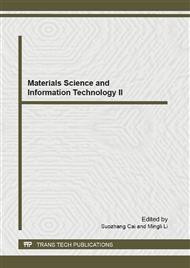[1]
Oliver J R. A machine learning approach to automated negotiation and prospects for electronic commerce. Journal of Management Information Systems, 1997; 13(3).
Google Scholar
[2]
Fatima S, Wooldridge M and Jennings N R. A comparative study of game theoretic and evolutionary models of bargaining for software agents. Artificial Intelligence Review, 2005; 23(2).
DOI: 10.1007/s10462-004-6391-1
Google Scholar
[3]
Gerding E, van Bragt D D B and Poutre J La. Multi-issue negotiation processes by evolutionary simulation: validation and social extensions. CWI Technical Report SEN-R0024, Amsterdam, (2000).
Google Scholar
[4]
van Bragt D D B, Gerding E and Poutre J La. Equilibrium selection in alternating-offer bargaining models- the evolutionary approach. http: /www. e-jemed. org/1027/index. php, (2002).
Google Scholar
[5]
Binmore K, Piccione M and Samuelson L. Evolutionary stability in alternating-offers bargaining games. Journal of Economic Theory, 1998; 80(2).
DOI: 10.1006/jeth.1997.2387
Google Scholar
[6]
van Bragt D D B and Poutre J La. Co-evolving automata negotiate with a variety of opponents. In: Proceedings of the IEEE Congress on Evolutionary Computation, (2002).
DOI: 10.1109/cec.2002.1004452
Google Scholar
[7]
Rosin C D and Belew R K. New methods for competitive co-evolution. Evolutionary Computation, 1997; 5(1).
Google Scholar
[8]
LI Min-qaing, KOU Ji-song, LIN Dan. The basic theory of genetic algorithms and applications. BeiJing: Science Press, (2002).
Google Scholar
[9]
Tan K C, Lim M H, Yao X, et al. Recent advances in simulated Evolution and Learning. Singapore: World Scientific Press, (2004).
Google Scholar
[10]
Tu M T, Wolff E and Lamersdorf W. Genetic algorithms for automated negotiation: a FSM-based application approach. In: Proceedings of the 11th International Workshop on Database and Expert Systems Application, (2000).
DOI: 10.1109/dexa.2000.875153
Google Scholar


